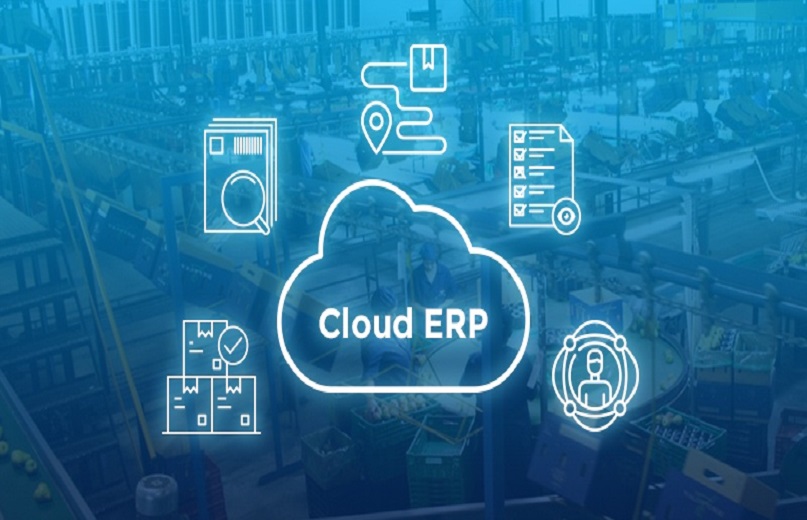
Cloud ERP Solutions: Revolutionizing Business Operations for Success
In today’s fast-paced business environment, staying ahead of the competition requires efficient, flexible, and scalable solutions. Cloud ERP (Enterprise Resource Planning) solutions have emerged as a game-changer for businesses of all sizes, offering a comprehensive approach to managing various business processes. This article explores what Cloud ERP solutions are, their benefits, key features, and their role in modern business operations.

What is Cloud ERP Solutions?
Cloud ERP refers to an enterprise resource planning system that is hosted on cloud servers rather than on-premises servers. It integrates various business functions such as finance, human resources, supply chain management, and customer relationship management into a single, unified platform accessible via the internet. This approach eliminates the need for extensive on-site hardware and reduces the complexity of managing IT infrastructure.
Benefits of Cloud ERP Solutions
- Cost Efficiency: Cloud ERP solutions typically operate on a subscription-based model, which reduces the need for significant upfront investment in hardware and software. Businesses can avoid costs related to server maintenance, upgrades, and IT staffing.
- Scalability: As businesses grow, their needs evolve. Cloud ERP solutions offer scalability, allowing companies to easily add new users, modules, or features as required without significant additional investments or disruptions.
- Accessibility: With cloud ERP, employees can access the system from anywhere with an internet connection. This remote accessibility supports a flexible work environment and ensures that business operations continue smoothly regardless of location.
- Automatic Updates: Cloud ERP providers handle software updates and patches, ensuring that businesses always have access to the latest features and security enhancements without the need for manual intervention.
- Enhanced Security: Leading cloud ERP solutions offer robust security measures, including data encryption, regular backups, and compliance with industry standards. This level of security helps protect sensitive business data from unauthorized access and breaches.
- Improved Collaboration: Cloud-based systems facilitate better collaboration by allowing multiple users to access and work on the same data simultaneously. This real-time access helps streamline workflows and improve decision-making.
Key Features of Cloud ERP Solutions
- Integrated Modules: Cloud ERP systems come with integrated modules that cover various business functions, such as finance, HR, sales, procurement, and supply chain management. This integration ensures seamless data flow and consistency across the organization.
- Real-Time Reporting and Analytics: Cloud ERP solutions provide real-time data analysis and reporting tools, enabling businesses to make informed decisions based on up-to-date information.
- Customization and Flexibility: Many cloud ERP systems offer customization options to tailor the software to specific business needs. This flexibility ensures that the system can adapt to unique business processes and requirements.
- Mobile Access: Mobile-friendly interfaces and applications allow users to access ERP functionalities on smartphones and tablets, enhancing productivity and responsiveness.
- Automation: Cloud ERP solutions often include automation features that streamline repetitive tasks, such as invoice processing, inventory management, and payroll, reducing manual effort and errors.
The Role of Cloud ERP in Modern Business Operations
- Streamlined Processes: By integrating various business functions into a single platform, cloud ERP solutions streamline processes and eliminate data silos, leading to more efficient operations and improved overall performance.
- Enhanced Data Visibility: Cloud ERP systems provide centralized data storage, offering comprehensive visibility into business operations. This transparency supports better decision-making and strategic planning.
- Agility and Innovation: The flexibility and scalability of cloud ERP solutions enable businesses to quickly adapt to changing market conditions, adopt new technologies, and innovate to stay competitive.
- Customer Satisfaction: Improved operational efficiency and real-time data access enhance customer service and support, leading to higher customer satisfaction and retention.
Conclusion
Cloud ERP solutions represent a transformative shift in how businesses manage their operations. With their cost efficiency, scalability, and comprehensive features, these systems offer a powerful tool for enhancing business performance and driving growth. As organizations continue to seek innovative ways to streamline processes and improve efficiency, cloud ERP solutions stand out as a critical component of modern business strategy.


Leave a Comment